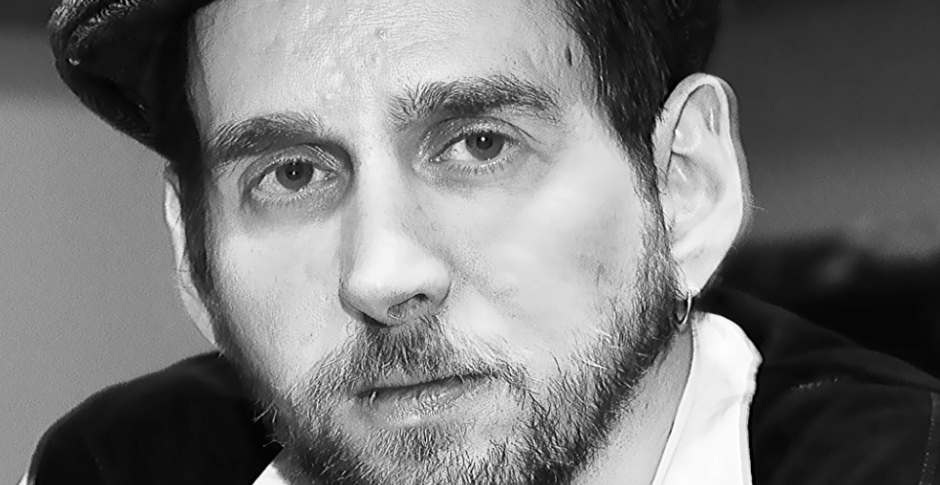Keith Jones: I am proud to say that I used to work in Miloš Havel’s former offices in Palác Lucerna, and to have that level of personal connection to the Barrandov Studios and the history of Czech cinema
Written by Eva Csölleová, Vítek FormánekThis was real chain reaction. Eva gave me a DVD of Punk in Africa, that I found interesting and thought it would be good to make interview with some people featuring in it. I googled and found David Chislett, film co-producer. He willingly replied within few hours and gave me some contacts. Among them was one for director of the film Keith Jones. I was shocked to learn he has been living in Prague for 30 years. He was super approachable and we liked his punk way of making films. We also liked his attitude towards Czech Republic, people around film and music, simply the ideal man for interview for Unitedfilm.
You hail from Washington DC. What kind of university was it where you met our novelist Arnošt Lustig, who was your professor?
I spent my formative years in Washington DC, and also attended American University there beginning in 1989. For me the year 1989 is really the starting point for most of the rest of my life, partly for obvious reasons – without the foundational political changes of that year it would have been inconceivable for me to even visit Czech Republic or South Africa, let alone living and working in these countries.
A crucial week for me was at the very end of the summer in 1989, when I saw a free concert of Soulside and Fugazi at Fort Reno park, which is basically right next to American University, and then began my first class with Arnošt Lustig a few days later, which was a course entitled Film and Literature. I had no idea who he was, and decided to take the class almost randomly because it seemed to overlap with two of my emerging artistic interests and also fulfilled a basic course requirement for the university. It turned out to be a very personal overview not just of classic film adaptations of great novels but also of 1960s European art cinema, Visconti, Bondarchuk, David Lean, Alain Resnais, most of which I was unfamiliar with. It was also the first time I encountered Aristotle’s Poetics, so it was a completely different method of teaching and even reading than I was used to, and I absorbed a lot from it. Later in the course, at the end of November, the teacher, who I already thought was a cool, interesting, fascinating personality, briefly disappeared for several classes and then re-emerged saying that there had been a revolution in his country and that his friend had subsequently become the president…I was intrigued by him before, but after that, I made a point of enrolling in his class first the following January. After that I just took all of his classes, eventually also studied video production with his son Josef, and shortly thereafter found myself in Prague, at FAMU, in 1991.
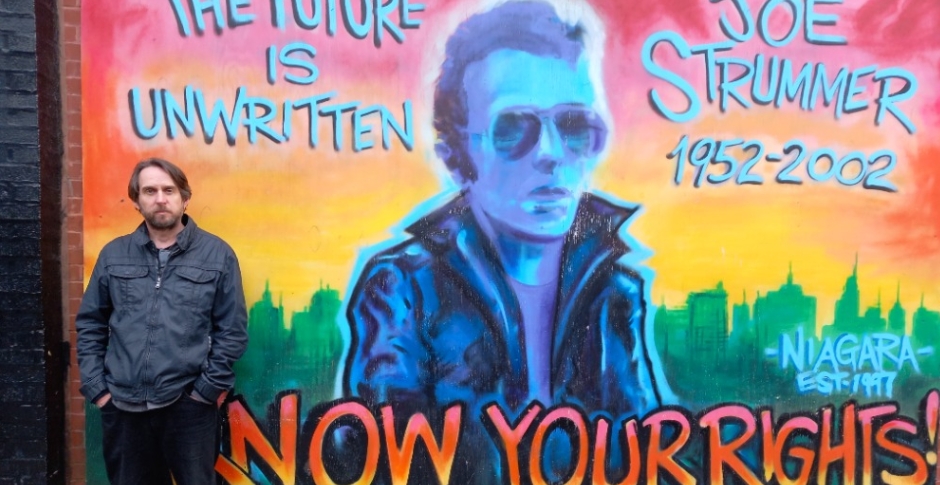
Was it your dream or intention to be a filmmaker and since it was probably better and cheaper to study that in Prague FAMU you came this way upon Lustig recommendation?
At that age I honestly had no idea what I wanted to do professionally or artistically, I was just engaging in adventures as they presented themselves – but I had studied in Paris when I was 17 and knew that I wanted to spend more time in Europe. After 1990, it became possible and also very attractive to visit Prague, but I wasn’t thinking of it then as a lifetime commitment. It was also better, cheaper, and life changing, but originally it was just the recommendation of Arnošt that brought it to my attention. By then, various people around him had started to show up at my university whom I met, the writer and translator Zdeněk Urbanek (who later became my downstairs neighbour in Letná), Jiří Menzel, Ivan Passer, and others…Arnošt would also quote at length from lectures he had heard himself when he was younger, so he would speak often about Eduard Goldstücker in relation to Kafka, Milan Kundera about French literature, and so on. In one class he devoted almost half the semester to describing his working relationship with Jan Němec. But I didn’t yet realize that all of this was connected to FAMU pedagogy and the Czech New Wave. I just got very lucky to be exposed to all of this at the best possible age. When I actually got here, it started to make sense, and of course I also loved Prague. Again, in the first week of school here I saw a memorable concert, this time at the Žofín ballroom, of Velvet Revival and Psí vojáci, members of which also later became friends and collaborators. But at the time it was just part of the overall atmosphere, not anything I consciously sought out. It was just an amazing time to be part of, at the right age.
Study in Prague was obviously better and cheaper than in America, but it was that Lustig recommendation that focused me on FAMU
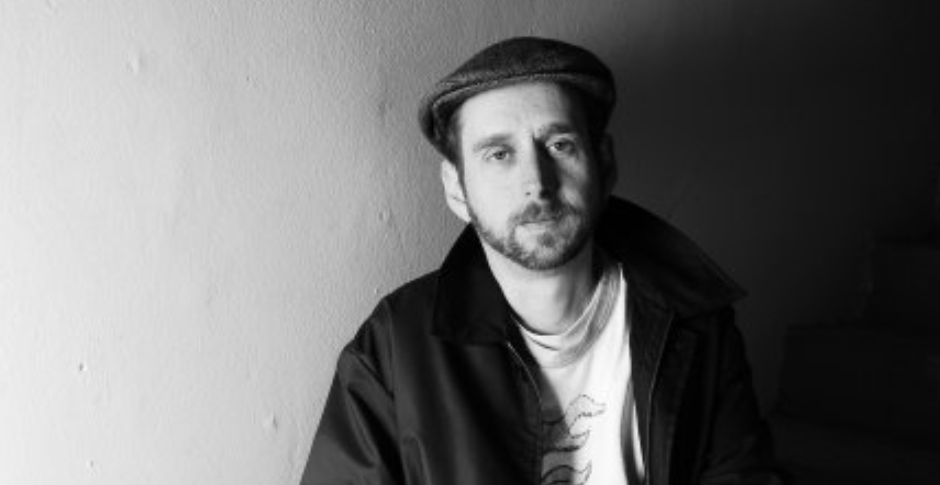
What were your beginnings in Prague 1991? Was it difficult for an American to understand the nature and culture of Czech people and didn´t you feel like on Wild West it “Wild Nineties”, when everything was possible?
Somehow I came to appreciate and like Czech people from the start, and also of course I was exposed to exceptional figures at FAMU – I met almost all of the Czech New Wave, also many former dissidents and names from 1968 that were around Arnošt and his family at the time, and also people from the 1930s avant-garde like Jiří Lehovec and Otakar Vávra who were still teaching, and informally from drinking in pubs in Hradčany and Malá Strana, some of the RAF airmen, in particular Jan Wiener and Jan Říha. So maybe I just met the right people…but they were actually the best possible people for me to meet at that age, it was an education not just in arts, but in morality and courage and resistance. I met Zuzana Růžičková at Terezín in 1991 and will never forget it. I also met Havel for the first time in 1992. Most people don’t get to have these experiences at that age, and I think I always realized how unique all of this was.
Of course, there was a wildness and naivety about economics at that time, but I had lived through Reaganomics and wasn’t fooled by it, and had a pretty solid informal education in hardcore and hip-hop of the 1980s so my politics were already formed by then anyway.
Some years later, I addressed some of the questions of the 1990s in my film Vinyl Generation (2016) which was in some ways a belated response and summary of having also lived through those times in Prague. I’m also very glad I did, although unlike some of my peers, I don’t really have such great nostalgia for that time. At the same time, it is very hard to imagine my life now without having lived through that era.
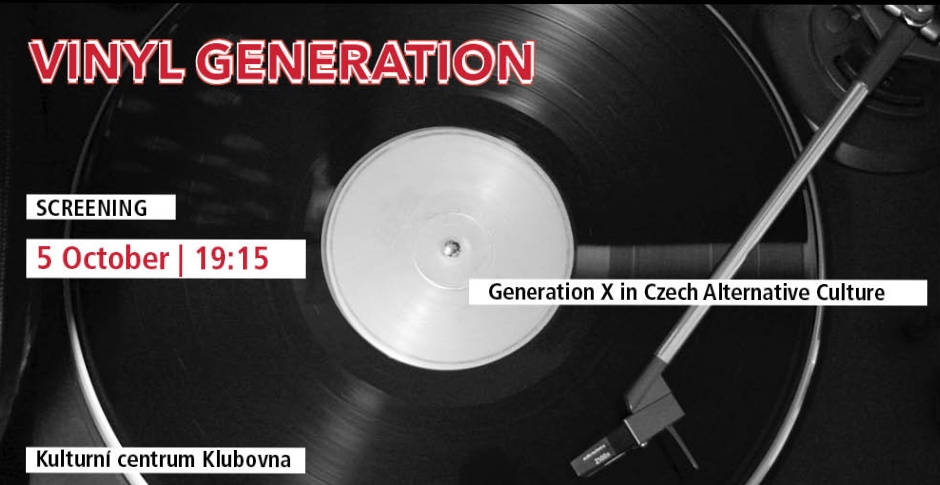
Your first documentaries were made in new Millenium. What have you done between end of FAMU studies and your first film? Was it difficult to get established, get to know important people and get funds for your projects?
It’s always difficult or at least challenging to get funding for the type of projects I’m interested in, but that’s the same for everyone. After finishing with FAMU I also taught for various international programs (now I teach a “film as sociology” course for European students at SV UK) and was for several years the program director of the MOFFOM Festival in Prague. I managed to always meet people who have consistently helped me in my work but also as friends, and have to say that when I was first really getting started with film co-production, working with Institut pro dokumentární film and other EU training programs was actually very useful. Creative artists can always learn the aspects and tools of production and business, but producers and business people can’t usually learn to be creative.
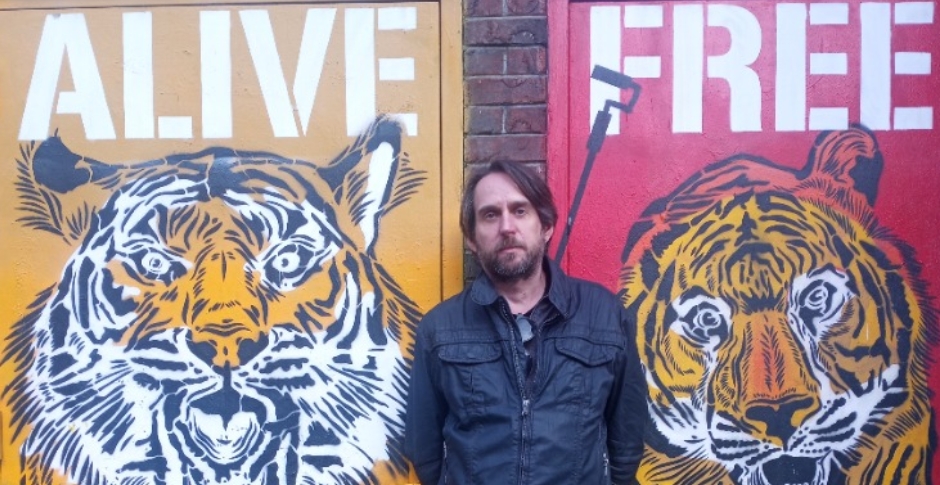
You film very different topics, how do you pick them up?
I would rather say they pick me up, and like Kafka’s “mother with claws” they simply don’t let go. I never would have actively thought to just make another documentary about Dischord Records and the Washington DC punk scene, it was more something that happened to me – right time, right idea, right place, right people. Vinyl Generation seemed to grow directly out of Punk in Africa, since when I would come back and tell my friends in Prague what I was discovering, or try to explain Czech or Polish underground culture to South Africans or Zimbabweans, everyone would say, “That sounds exactly like our story here!” The television series Flowers of the Revolution in South Africa was basically a job assignment at first, but as it dealt with former political dissidents, WWII veterans, youth subcultures, even the Jewish community of Johannesburg, it all felt like themes I’d been dealing with and absorbing in Prague anyway, so I made it my own. My two documentaries on rural African electronic music came about literally because I heard that music coming out of cars and taxis in different cities and couldn’t get it out of my head, I became obsessed with it. At the end of every project however, the people involved all become long term friends. I’m still in contact with everyone from all those films until today.
Creative artists can always learn the aspects and tools of production and business, but producers and business people can’t usually learn to be creative
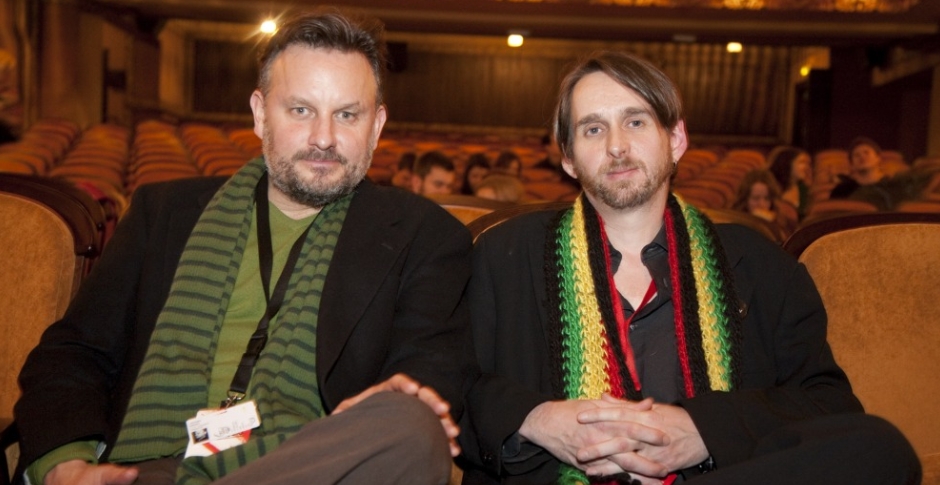
You made Durban Poison which is the first ever Czech-South African cooperation and Punk in Africa. What is your connection with SA and why do you take such an interest in it?
Durban Poison was the first Czech-SA documentary co-production, and perhaps the first documentary project between the two countries since the 1940s travel films of Zigmund and Hanzelka…most traffic in the 1990s between the two countries was self-contained and only in one direction, rather than a conversation. I was just in the situation to make that happen naturally.
I first went to South Africa because a friend was getting married in Zimbabwe in 2003, and I decided to buy a ticket to allow me to travel around the region for six weeks or so. But what happened instead was that I met my future colleagues from South Africa at the wedding, and they offered me a job doing script re-writes starting the following Monday in Johannesburg. That eventually grew into a long-term working relationship and several films through their company. Today my former co-producer Deon Maas lives in Berlin and we still see each other regularly, only in Europe – we were in Tabor together a few weeks ago for a vernissage and concert.
As to my deeper interest, that derives from my roots in the 1980s punk scene, which was heavily connected with the anti-apartheid movement. Again something that I wasn’t consciously thinking about at the time, but as a teenager I had an Amnesty International “prisoner of conscience” postcard of Václav Havel in my bedroom, and also used to display the Special AKA single, “Free Nelson Mandela” which was a similar format photograph, so I guess my interest in these societies was always present on some level, originally as some sort of nexus of intersection between protest and political dissent with alternative culture and music I was into at the time. Both reggae and forms of African music were kind of adjacent to both punk and hip-hop in the 1980s anyway, so I was always aware of South African music to some extent. The first African record I really connected to was Mace and Grenades by Hugh Masekela, which was released as a single in 1968 (I still have my copy). Later I got to meet Hugh Masekela in Johannesburg twenty years later and share that story with him, and he told me that the record almost never came out and was suppressed by the company, and then banned from radio play anyway. Another connection across all the continents and decades – these stories have always found me.
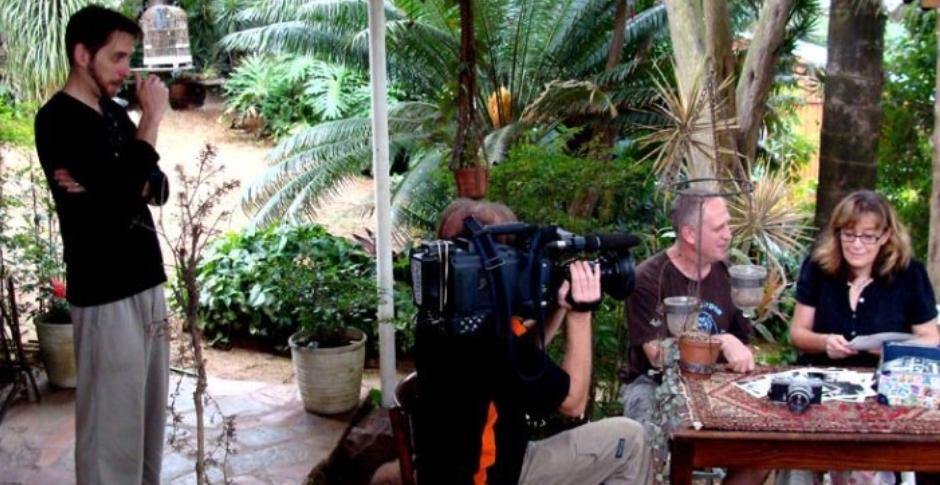
You were involved in MOFFOM. How did you get there, what do you actually do there and does music go hand in hand in your life?
I was the program director of MOFFOM (Music on Film Film on Music) during its existence from 2004-2008. That was for me primarily an outstanding learning curve in terms of better understanding the festival world, film distribution, producing side programs, commissioning new music for silent films, and many other useful skills. It was also an excellent party while it lasted, and allowed me to invite to Prague many filmmakers I had long admired from the punk scene such as Don Letts, Julian Temple and Henry Hills. In some ways the experiences I had at the festival remain with me until now, it was an important and formative time for me.
Also, it remains a great pleasure of mine that for those few years, I used to work in Miloš Havel’s former offices in Palác Lucerna, and to have that level of personal connection to the Barrandov Studios and the history of Czech cinema.
I shoot cheaply and travel lightly, work with a skeleton crew, and save money for the editing process – and to worry about finding a distribution partner at the rough-cut stage
Your much acclaimed document is called Fighter about Czech airmen Jan Wiener and Arnošt Lustig. How are you documents doing abroad?
That film primarily showed at festivals more than being sold to television, but it went everywhere at the time and was awarded several prizes. It was sort of an early example of what became my standard working method with my cameraman Gary Griffin, to shoot cheaply and travel lightly, work with a skeleton crew, and save money for the editing process – and to worry about finding a distribution partner at the rough-cut stage. It is basically a punk rock or DIY approach to documentary filmmaking which is outside of the television format anyway. For us, it has usually worked out – Punk in Africa also went to more than 50 film festivals all over the world and was sold in several counties after the fact. Vinyl Generation cost almost nothing to make but ended up being sold to TV in Poland US, and well-distributed in many countries through programs like Days of European Film and the Courage Festival in 2018, and is still requested for screenings at many universities around Europe every November until now. Fighter was for me like an extension of film school where I learned how to do this on my own independent terms and make it work.
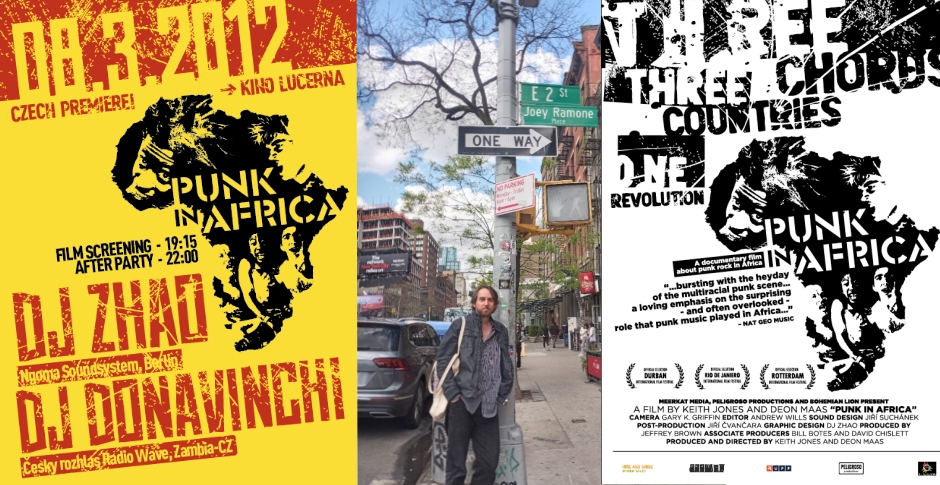
What is the current or future-to- be-project you are working on?
Right now, I am working on three documentaries simultaneously, partly due to the pause and chaos imposed on my working method during the pandemic lockdowns, and partly due to other unforeseen circumstances.
Primarily I make a personal documentary about the DC band Soulside, the first US hardcore group to tour behind the Iron Curtain in 1989, in the context of the Revolution Summer movement, also exploring the lasting connections since this time between Dischord Records and small local companies in Czech Republic and Poland. That film returns me to DC but has also involved extensive shooting in diverse locations such as North Carolina, Brooklyn, Burgenland, Krakow, Wroclaw…and Letná.
I will also revisit my 2015 TV documentary about legendary South African electronic music producer DJ Spoko for a sort of expanded tenth anniversary “remix” of the original film, which is also tied to a forthcoming US-South African-Nigerian music project. Shooting 1-15 July in South Africa, mainly Pretoria.
Lastly, I am at work on a long-term documentary project for many years about South African band The Flames, “the most famous band you’ve never heard of” who recorded the biggest selling no. 1 single in Southern African music history only to fail as a band in emigration, but whose members then went on to play with much more famous artists in the years to follow (Beach Boys, The Rutles, Rolling Stones, David Johansen, Bonnie Raitt).
Thank you very much.
Photos, thanx: archiv Keith Jones


